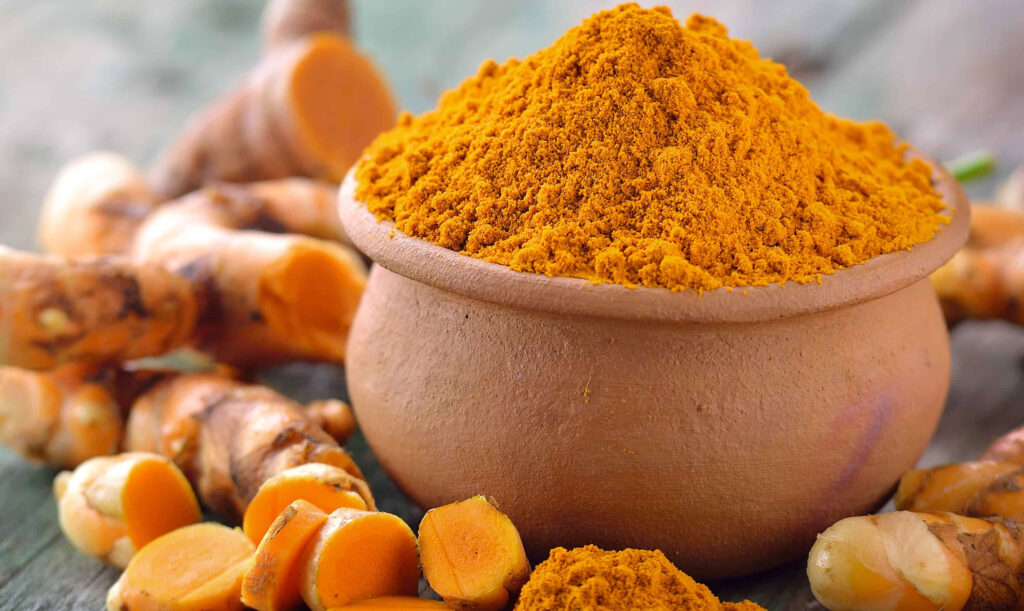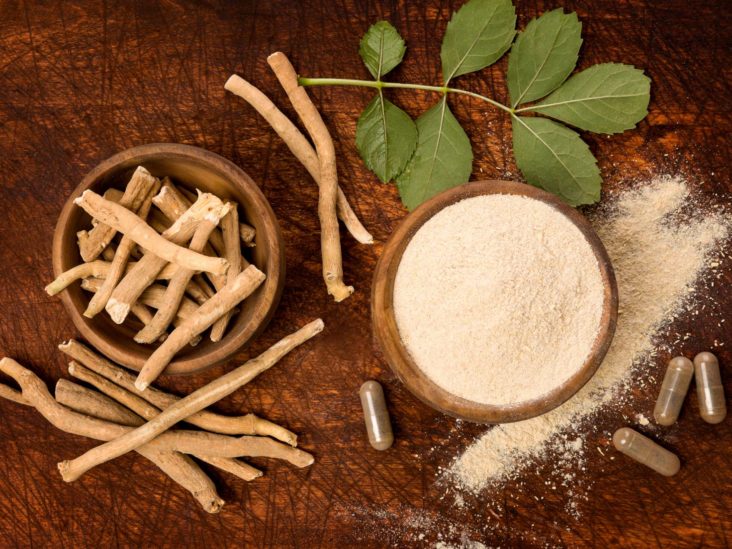Turmeric: The Golden Herb
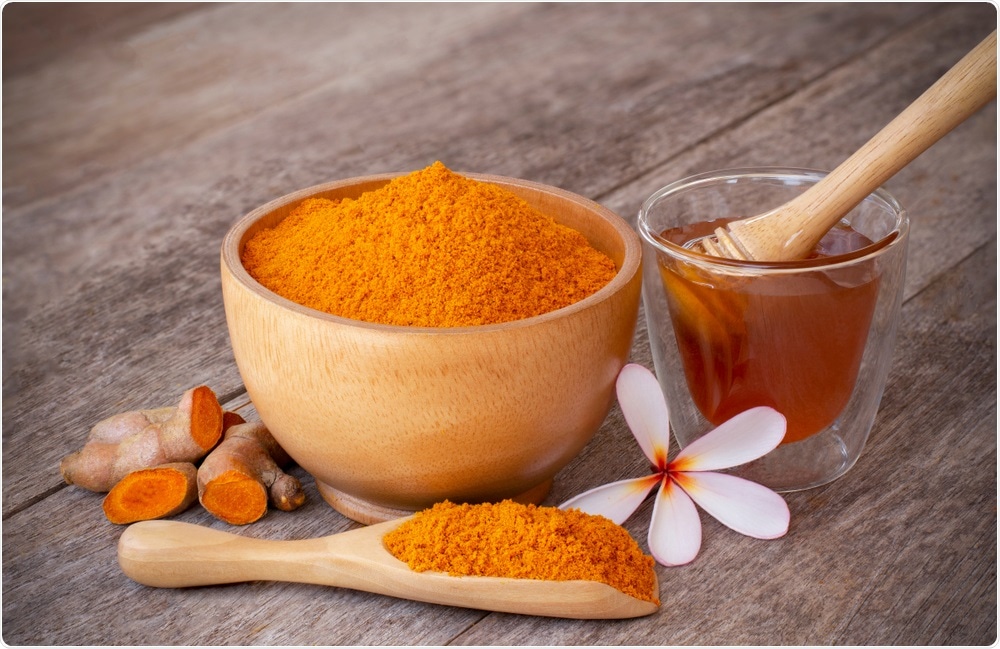
Turmeric is a staple in Indian kitchens – whether to flavor our curries or dumped into simmering milk to relieve a runny nose. Whether it is the dizzy rush of fever, an acne breakout, or a slow-to-heal bruise, turmeric has always found its way into our grandma’s home remedies.
Turmeric (Curcuma longa) is a perennial herbaceous plant from the ginger family. It is native to South Asia’s tropical, high-rainfall regions and cultivated predominantly in India. Indian turmeric is considered the best in the world for its inherent qualities and high bioavailability of curcumin. The golden-coloured turmeric powder is obtained by grinding the plant’s underground stem, a rhizome. Using turmeric as a culinary ingredient dates back to 2000 BCE Vedic India.
The healing properties of turmeric make it an amazing herb, used in many Ayurvedic formulations. Turmeric is known as Haridra in Sanskrit, meaning the one that adorns Hari or Lord Vishnu. Its radiant yellow colour is auspicious and integral to various rituals. It possesses multitudinous healing properties and has anti-oxidative and anti-inflammatory properties.
This vivid yellow spice has been hailed as a superfood. Curcumin, one of turmeric’s most important active components, has been researched extensively because of its anti-inflammatory properties. It improves immunity and helps maintain blood sugar levels. It aids in healthy digestion and boosts your mood.
Turmeric in Ayurveda

In Ayurveda, turmeric is classified as Vayasthapana, or age restorer, and Ojo vardhana, or vitality booster. It balances Vata and Kapha dosha because of its ushna or hot potency. It balances Pitta because of its bitterness. Hence, it balances all three doshas. It supports healthy Rasa dhatu (plasma) and Rakta dhatu (blood) and nourishes the circulatory system by circulating its health benefits throughout the body. It supports Agni (healthy metabolism) and thus maintains optimal digestive strength.
Properties of Turmeric

Turmeric has many properties that make it an invaluable ingredient in many Ayurvedic formulations. Let’s look at some of the prominent properties of turmeric:
- Turmeric for pimples: Curcumin, the active principle of turmeric, has potent anti-microbial properties. Since ancient times, it has been a well-known and effective remedy for many skin issues.
- Turmeric for pain relief: Enriched with anti-inflammatory properties, turmeric is effective in joint issues.
- Antioxidant: Turmeric is a rich source of antioxidants, protecting the body from the adverse effects of free radicals.
- Turmeric for Diabetes: Turmeric possesses anti-diabetic properties, helping decrease blood sugar levels and may reduce the effects of diabetes complications.
- Turmeric for weight loss: Turmeric is a metabolism booster that reduces fat tissue growth.
Health Benefits of Turmeric
Haridra (curcuma longa) or turmeric is the Indian saffron and the golden spice. The benefits of Haridra have been extensively discussed in classical Ayurveda texts. The fact that Haridra has 80 synonyms is a testament to its utilitarian benefits identified thousands of years ago.
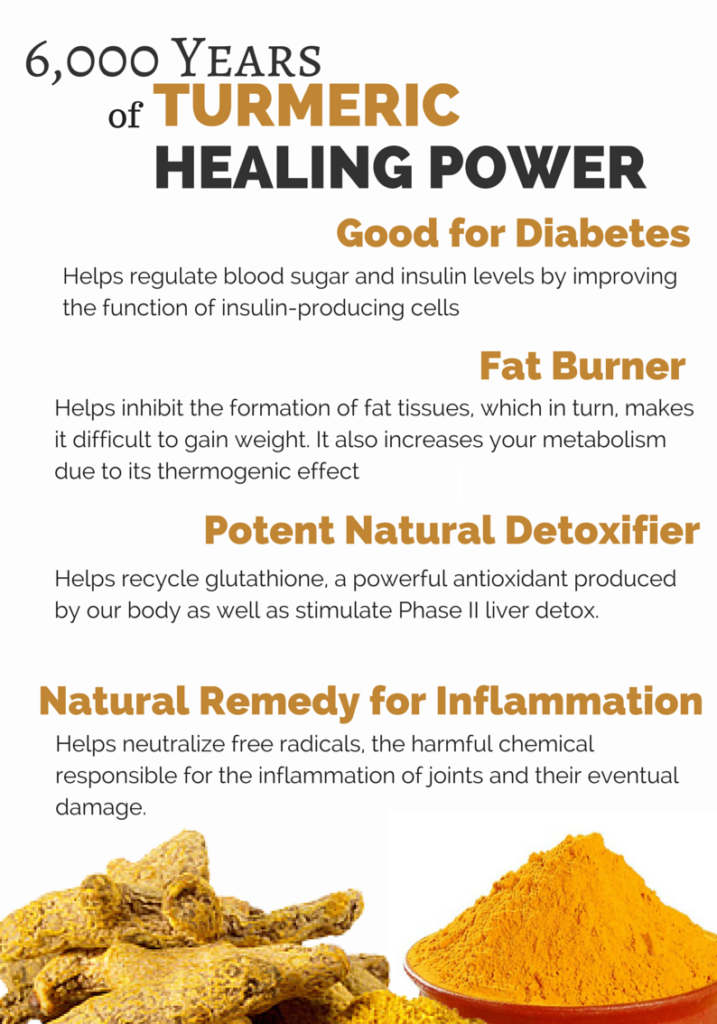
- Turmeric for immunity – Turmeric is known as an immunity booster herb. Curcumin, an active compound found in turmeric, has anti-inflammatory properties that can help fight colds, flu, and other microbial diseases. Turmeric milk, or Haldi doodh has traditionally been a healing remedy for colds and coughs.
- Turmeric for pimples – Turmeric has been linked to beauty therapies because of its skin healing properties. It has over 300 antioxidants that help brighten skin and prevent breakouts. A face pack of sandalwood, turmeric, and milk can effectively remove tan.
- Turmeric for wound healing – Turmeric has antiseptic properties that can promote quick wound healing. Topical application of turmeric over fresh or chronic wounds promotes faster wound healing. It also prevents and cures fungal infections.
- Turmeric for digestion – The antioxidant and anti-inflammatory property of turmeric boosts digestion and soothes the stomach lining. The Katu (pungent) taste escalates the Agni (digestive power) and facilitates the secretion of digestive juice.
- Turmeric for cholesterol – Turmeric improves your blood vessels’ function and keeps cholesterol in check. It helps improve circulation and reduces the triglyceride levels.
- Turmeric for pain relief and joint health– It improves the functioning of joints by easing joint pain and improving flexibility. It can help reduce the inflammation of joints, relieving swelling. Due to curcumin’s presence, turmeric helps relieve joint issues. It is inherently Vata-kapha pacifying in nature and has a soothing effect on the locomotor system. Ayurveda Acharya Vagbhata included turmeric in the Haridradi group, indicated for curing rheumatism. Contemporary studies have confirmed that curcumin, the key ingredient of turmeric, protects soft tissues, including cartilage.
- Turmeric for brain health – Curcumin boosts levels of the brain hormone BDNF. This hormone boosts the growth of new neurons and may help fight various brain degeneration. It is also said to improve memory and concentration and reduce anxiety.
- Turmeric for liver – Turmeric helps in detoxification and helps maintain liver health. Studies have confirmed that it may help heal nonalcoholic fatty liver. It helps reduce oxidative stress and assists in liver regeneration.
- Turmeric for diabetes – Turmeric helps reduce blood sugar and associated complications in type 2 diabetes. It also assists in healthy weight management. It improves fasting blood sugar levels and insulin resistance.
Turmeric Home Remedies
As people are well aware of many turmeric benefits, it has been widely used in home remedies. Let us look at some well-known use of turmeric:
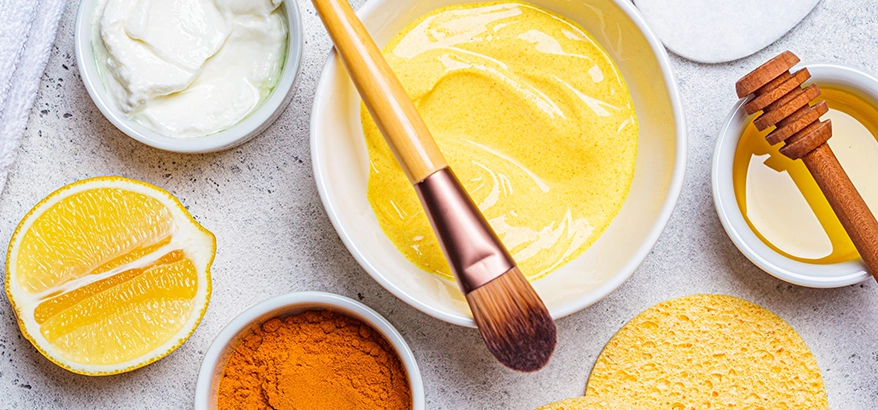
- Turmeric milk is a traditional, soothing drink, often called golden milk, used to soothe a sore throat and other inflammatory conditions. To prepare Turmeric milk, add ¼ teaspoon of turmeric and a pinch of black pepper powder into a glass of warm milk and drink. This turmeric milk is well known for treating colds and coughs. It is also suitable for promoting sleep. Adding pepper helps in better absorption of curcumin.
- Turmeric is used in many face packs. Because of its antimicrobial and healing properties. For oily skin, use of turmeric powder with lemon juice or multani mitti, and for dry skin, use it with milk as a face pack. Apply it for 10-15 minutes and wash with cold water. It helps clear pigmentation, acne, blemishes, and tan.
- For relieving a sore throat, mix one teaspoon honey with ½ teaspoon turmeric powder and consume 2-3 times a day.
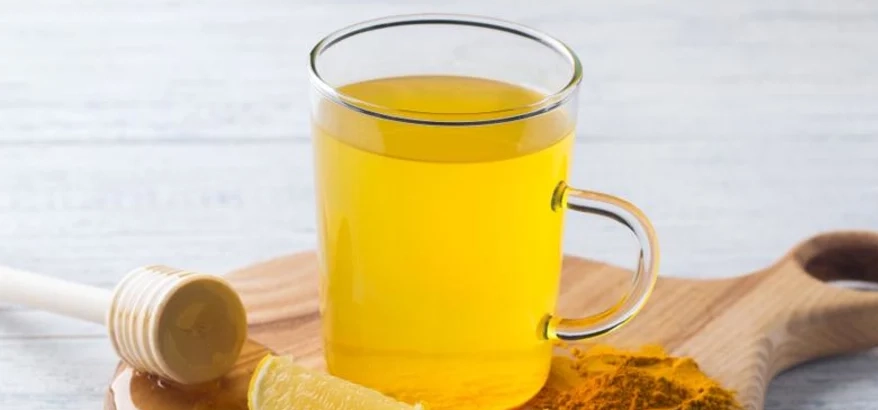
- Turmeric tea is a soothing and warm blend of herbs steeped slowly to detoxify your body. Boil 200 ml of water and add one inch of freshly grated turmeric or ½ teaspoon of turmeric powder. Strain and add one teaspoon of lemon juice and honey as required.
- Mix one tablespoon of amla juice with a pinch of turmeric and consume on an empty stomach to balance your blood sugar levels.
Side Effects of Turmeric
Turmeric is safe for consumption. Indian cuisines used turmeric in ancient times. However, one should know the potential turmeric side effects while using it as a supplement or taking it in large quantities.
- If taken in large quantities, turmeric might cause gastric irritation, diarrhea, or mild discomfort.
- Some commercially available turmeric powders with harmful colorants and fillers, such as rye might be adulterated. These can cause ill effects, so always consume turmeric from reliable sources.
- Turmeric has an anti-coagulant effect, so if you are on blood thinners like warfarin, it may lead to excessive bleeding.
- Turmeric might lead to drug interactions if you are on other medications. If you are on any other medication or have any health issues, it is better to consult your Doctor before taking any turmeric or curcumin supplement.
- Turmeric might stimulate contractions, so any turmeric or curcumin supplement should be avoided by pregnant women.
Key Takeaways
- Turmeric is a herb with potent healing properties
- This golden spice has a particular affinity towards blood and promotes detoxification.
- Turmeric has immense health benefits that range from managing diabetes to improving heart health.
- It is essential to consume turmeric or curcumin supplement only from reliable sources to avoid possible side effects of adulterated turmeric.
- Adding a pinch of black pepper can help better to absorb curcumin, the active component of turmeric.
